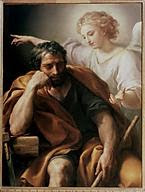The Emerging Church Part I

I would like to take the next few posts and talk about my thoughts with regard to the Emerging Church. Much of what I will say I owe to Eddie Gibbs and Ryan Bolger's very insightful book Emerging Churches: Creating Christian Community in Postmodern Cultures.
In this first post, I wish to look at the way emerging churches prioritize the person and work of Jesus. For emerging churches, Jesus is the priority. As Alan Hirsch and Michael Frost have pointed out (see The Shaping of Things to Come and ReJesus) our Christology needs to inform our missiology which in turn should inform our eclessiology. In other words, we begin with Christ - who he was and what he did - and then we move to following him in the missio Dei (mission of God), only once we have established the ultimate Lordship of Jesus and faithfully embraced the mission can we begin to talk about the Church. In most denominations and Christian circles, this is backward: we start with church, develop a mission statement and then fit Christ in whenever and wherever we can.
Emerging churches start with Christ.
This will have tremendous implications for the way that we do things.
We need to realize that modern forms of "church" are indebted more to Constantine than they are to Jesus. When the good emperor decided to make Christianity the official religion of the Roman Empire, the Jesus movement known simply as The Way was all but destroyed. Enter buildings, beauracracy, clergy-laity distinctions, popes, bishops, high profile preachers, worship leaders and denominations; in short, a move away from Christ, organic movements, and dangerous commitments; and a move towards human leadership, organization, and country-club type affliliations.
What would a church in 21st Century America look like if the leaders decided to deconstruct everything they have always believed about church: leadership, worship, discipleship, mission, programming etc. and reconstructed the church with Christ as the foundation? What if Matthew, Mark, Luke and John became the only texts we read for a while? Would it change the way we did things? Would it change our priorities?
I confess that I am fascinated by these kinds of questions. My entire Christian life has been spent worshipping in and serving the modern church. So contmeplating such a monumental paradigm shift as the one that the leaders of the emerging church are suggesting is challenging to say the least. But, there is something deep inside of me that senses that something is just not quite right; that something needs to change. And that is why I am reading the books that I am, and having the conversations that I am having, and writing the things that I am writing.
I have decided to follow Jesus.
Actually, I decided to follow Jesus about 20 years ago officially.
And then I decided that I wanted to serve Jesus with my life.
I just want to be faithful as I strive to follow and serve Jesus in this ever changing world.
.jpg)

I wish you well in your searching and seeking.
ReplyDeleteOne part of your post confused me, though.
When the good emperor decided to make Christianity the official religion of the Roman Empire, the Jesus movement known simply as The Way was all but destroyed. Enter buildings, beauracracy, clergy-laity distinctions, popes, bishops, high profile preachers, worship leaders and denominations; in short, a move away from Christ, organic movements, and dangerous commitments; and a move towards human leadership, organization, and country-club type affliliations.Scholars I read say there was quite a bit of organization to "the church" long before Constantine came on the scene. I get the concern about Constantinianism, but the good emporer did not invent the church. Christians did.
Thanks for your comment.
ReplyDeleteI agree that there was organization in the early church, albeit loose and much more organic.
My concern in this post is with the shift that occured in the fourth century under Constantine that essentially forced the church to move away from being a Jesus movement to becoming a highly structured, bureaucratic, man-centered institution. Constantine didn't invent the church, he popularized it and stripped it of its apostolic ethos.
The Church has never been the same.
This is why I feel that a serious paradigm shift must occur in order for the Church to once again become what Jesus intended it to be.